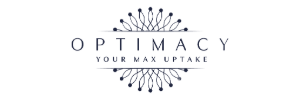Men’s vs. Women’s Nutritional Needs
Why Gender-Specific Supplement Awareness Matters

As men and women share many nutritional needs, gender-specific supplement awareness matters in those many unshared areas. There are important biological differences that impact how each gender should consider using vitamins, minerals, and nutrients along their wellness journey. Factors like hormones, metabolism, and body composition all influence nutrient absorption and dosage requirements.
At OPTIMACY, our mission is to inspire individuals to achieve optimal health by raising awareness of how science-backed nutrition can be applied more effectively. While, at this point, we do not manufacture a gender-specific supplement , we believe it’s essential to understand these differences when making informed health choices.
So, why does gender-specific supplementation awareness matter? Let’s explore.
Hormonal Influences and Nutrient Needs
-
Iron & Menstruation
Women of reproductive age are more prone to iron deficiency due to monthly menstrual blood loss. The N.I.H. recommends women aged 19–50 consume 18 mg/day of iron—more than double the 8 mg/day for men.
Failing to consider this difference may leave women under-supplemented, while men may risk iron overload.
- Hormonal Support: Estrogen vs. Testosterone
- Women often benefit from additional B-complex vitamins and calcium, especially during menstruation, pregnancy, or menopause.
- Men typically require higher levels of zinc, magnesium, and vitamin D to support testosterone production, energy, and muscle function.
Awareness of these hormonal differences helps us personalize supplementation strategies.
Differences in Body Composition & Metabolism
Men generally have higher lean muscle mass and faster metabolic rates, while women tend to have greater fat stores linked to reproductive health. These physiological differences shape nutritional priorities.
Key Differences:
| Nutrient | Women’s Needs | Men’s Needs |
| Iron | Higher (due to menstruation) | Lower |
| Calcium | Higher (especially after age 40) | Moderate, for bone and nerve health |
| Magnesium | Important for PMS and sleep | Crucial for testosterone, muscles |
| Zinc | Moderate for immunity & skin | Higher for hormone health |
Such variations highlight why dosage guidance should not be “one-size-fits-all.”
Life Stage Considerations
For Women:
- Pregnancy and lactation increase the need for folate, iron, and omega-3 fatty acids.
- After menopause, declining estrogen impacts bone density, making calcium and vitamin D even more essential.
For Men:
- Testosterone naturally declines after age 40, making vitamin D, zinc, and adaptogens like ashwagandha more relevant.
- Cardiovascular and prostate health become important areas of focus.
A gender-specific supplement awareness helps tailor supplement use to life stage and long-term goals.
Backed by Science: Why Gender-Specific Supplementation Matters
Research confirms that men and women metabolize nutrients differently. For example, women oxidize more fat and less carbohydrate during endurance exercise, while men respond more strongly to creatine and protein supplementation.
A study titled “Should Nutritional Recommendations Be Gender Specific?” by Tarnopolsky highlights how these differences should inform dietary and supplement recommendations.
Read more here: ResearchGate Study Link
This evidence supports the importance of considering gender-specific applications and dosages rather than assuming uniform needs.
OPTIMACY’s Role in Gender-Specific Supplement Awareness
At OPTIMACY, we don’t produce gender-specific supplements. Instead, we educate and empower individuals to make informed decisions about their health. By understanding how nutritional needs differ, you can better align your supplement choices with your unique biology.
Our focus:
- Promoting evidence-based nutrition awareness
- Sharing research-backed insights
- Encouraging personalization rather than “one-size-fits-all” solutions
- Inspiring the pursuit of optimal health, true to the meaning of optimacy—“the state of being the best”
Internal Support for Your Supplement Goals
To help you stay informed, explore related articles on our blog:
- 7 Signs of Nutrient Deficiency—and How to Correct Them Naturally
- Filling Nutritional Gaps with OPTIMACY’s Advanced Liposomal Supplements
- Personalized Supplementation: Matching Nutrients to Your Body Type, Goals, and Lifestyle
These resources are designed for health-conscious readers who value quality, science, and transparency in supplementation.
Final Thoughts: Striving for Optimacy in Your Wellness Routine
A gender-specific awareness is the first step in personalization. While supplements may not always need to be gender-specific products, understanding the unique nutritional needs of men and women ensures better outcomes and avoids common mistakes with dosage and application.
At OPTIMACY, we remain committed to guiding you with clarity, science, and excellence—because achieving your best health is about more than just taking a supplement; it’s about making the right, informed choices.
💡 Ready to Optimize Your Health?
SHOP OPTIMACY. Subscribe to our newsletter for the latest science-backed supplement insights and health tips.
👉 Sign up today and get 10% off your first order.
